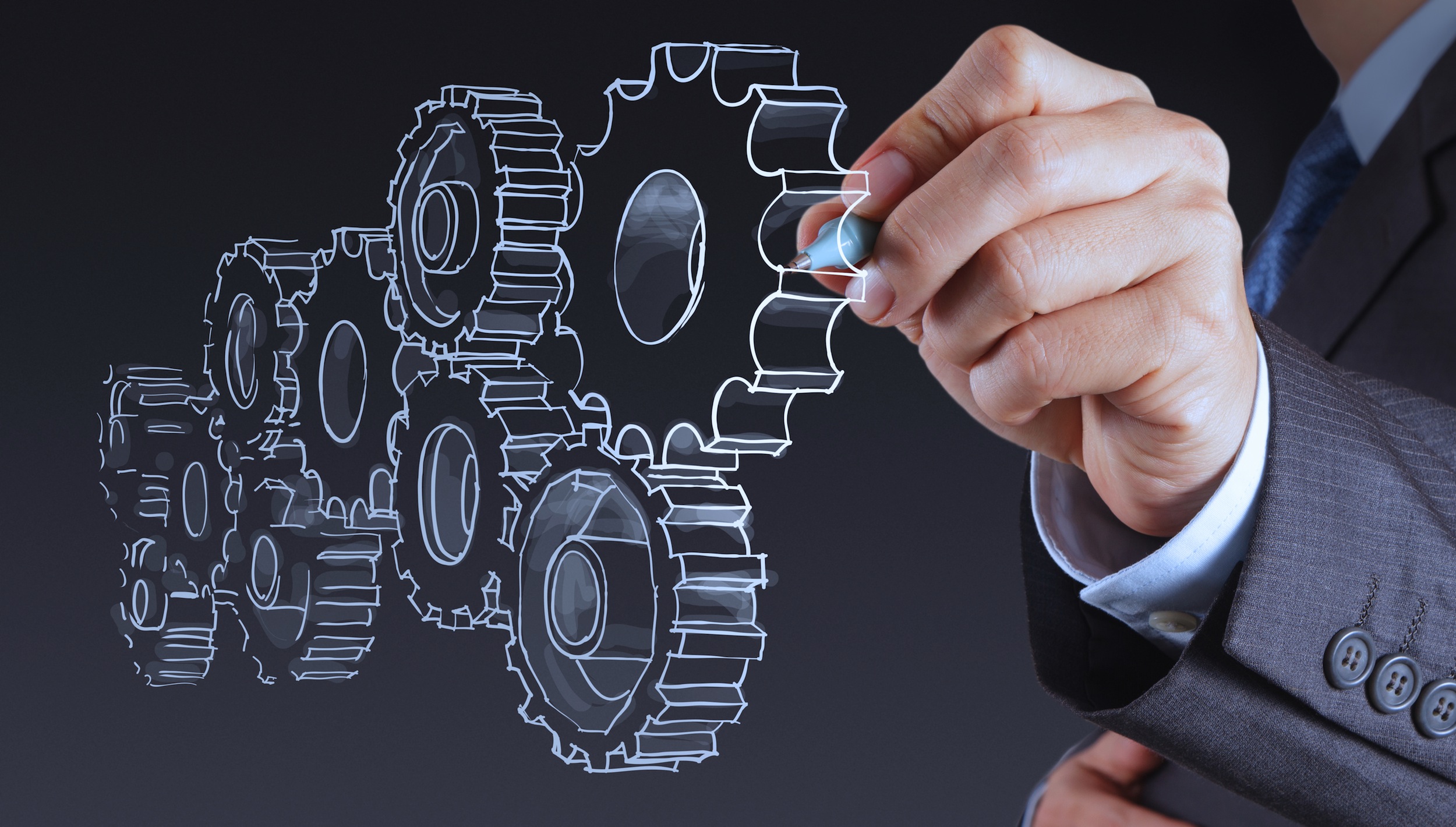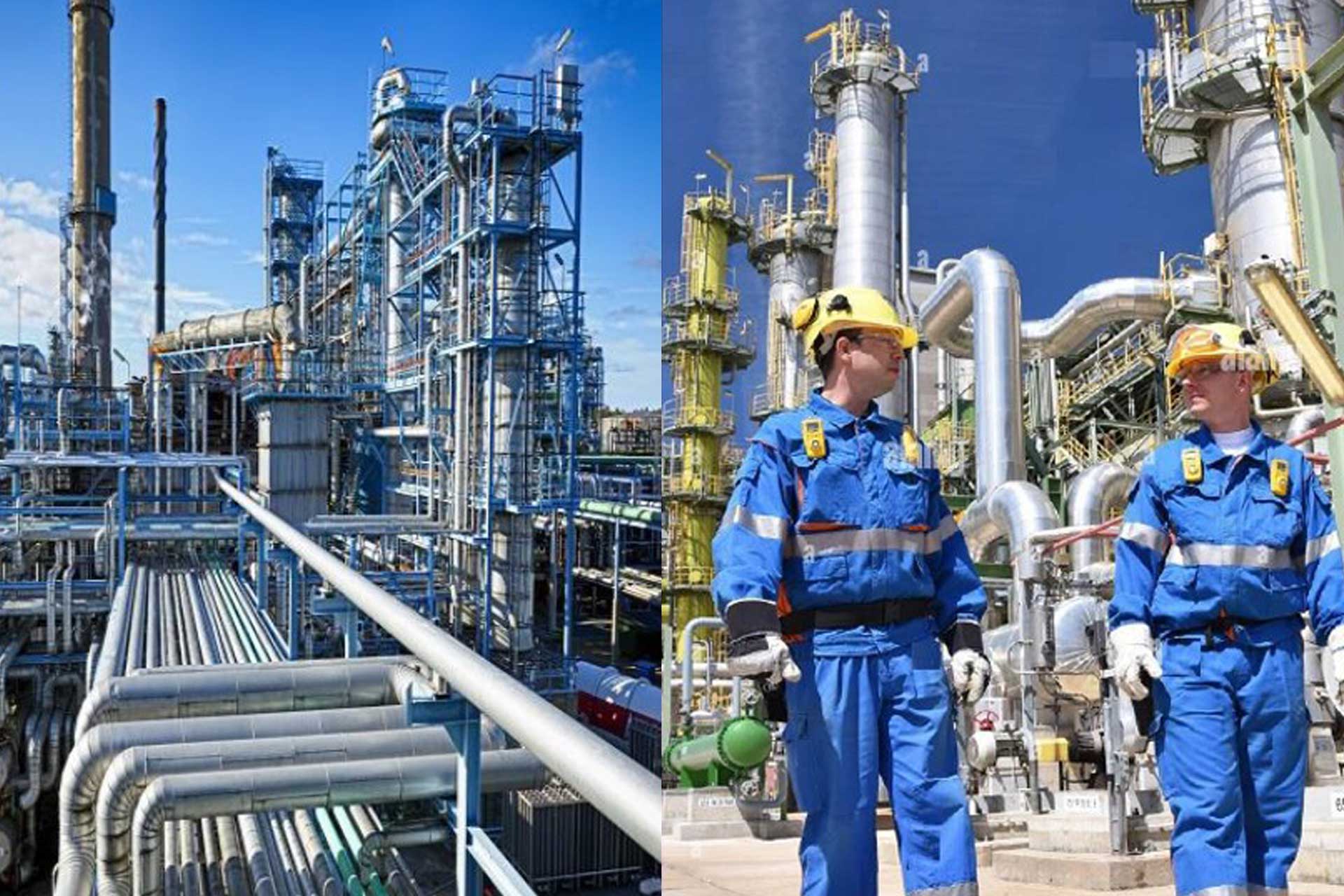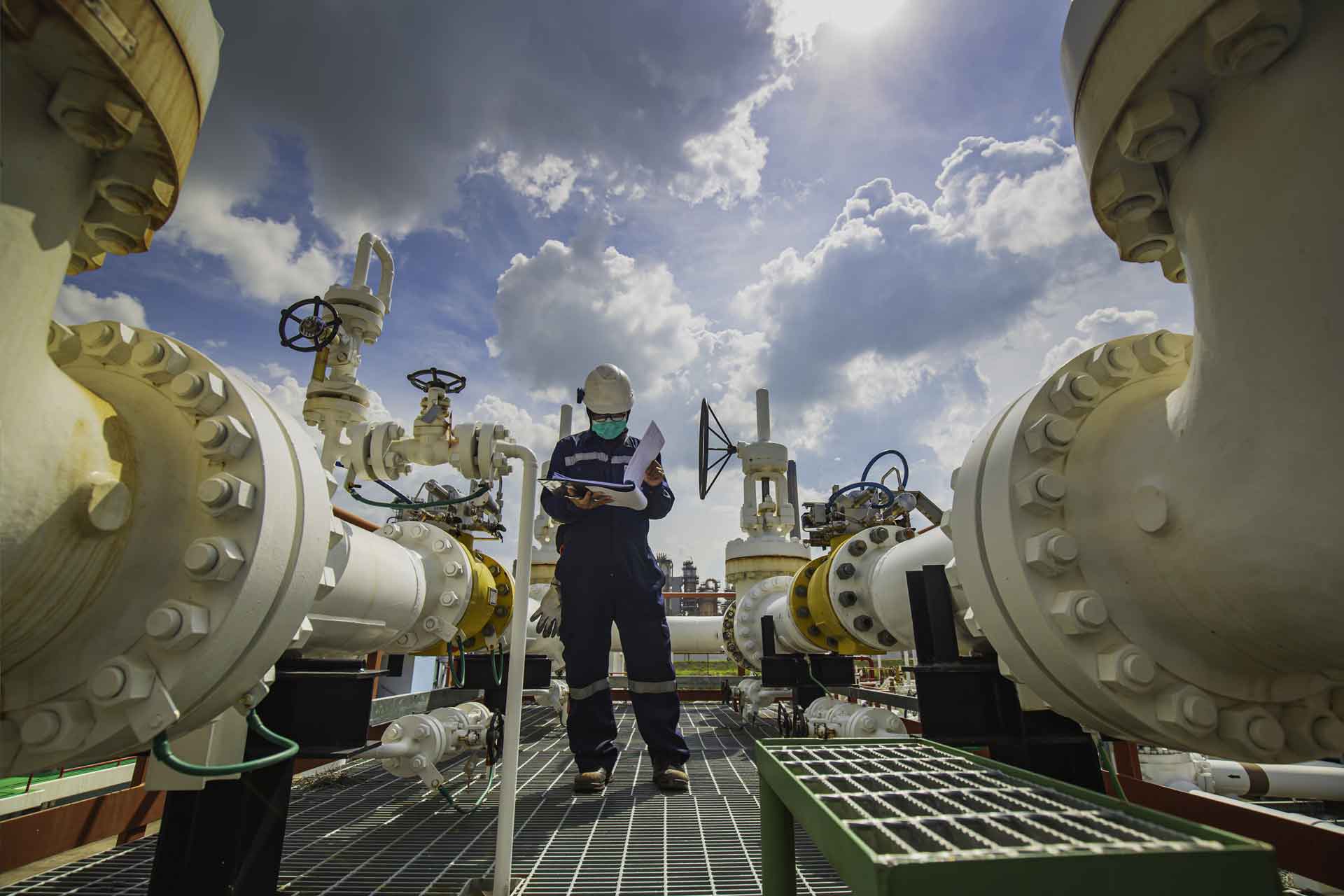Certificate Mechanical Courses in

Advanced Maintenance Management
Purpose of this Training Course:
Leading industrial organizations are moving away from reactive (“fix-it-when-it-breaks”) maintenance into predictive and preventive maintenance (“anticipating, planning, and fix-it-before-it-breaks”) as part of a life cycle focused Asset Management approach. This evolution requires well-planned and executed actions on several fronts. Advanced Maintenance Management provides great opportunities to optimize the performance of your assets and maintenance processes to achieve maximum return on investment (ROI). By reducing costs and downtime, while achieving high levels of safety and quality you will be able to get the best out of your assets.
This Certificate Course in Advanced Maintenance Management training course introduces participants to the skills and knowledge areas of essential advanced maintenance management technologies and methodologies. It demonstrates both the background to each technology, and its practical application to achieve the best bottom-line results.
This SHALE training course will highlight:
- Asset Management: a business-like approach of maintenance management
- Using KPI’s and the balanced scorecard to measure performance
- Assessing Asset Management maturity and determine the roadmap for improvement
- The business case for Asset Management improvement - cost/benefit thinking
- Understanding risk and an introduction to a Risk Based Maintenance approach
- Life Cycle Management with aspects like Systems Engineering and RAMS requirements
- Life Cycle Costing
- The latest concepts and techniques of Predictive and Smart Maintenance
Objective:
By the end of the Certificate Course in Advanced Maintenance Management training course, participants will be able to:
- Understand the basic principles of Asset Management as a framework for managing and optimizing maintenance
- Identify common maintenance Key Performance Indicators (KPIs) and develop the maintenance department scorecard
- Assess the organizational Asset Management maturity and develop a roadmap for improvement
- Examine the organizational and managerial considerations for highly effective Risk Based Maintenance
- Understand Life Cycle Management and the way Systems Engineering and RAMS could support this
- Determine the Life Cycle Costs of an asset
- Demonstrate the latest concepts and techniques with regard to Predictive and Smart Maintenance
Who is this Training Course for?
This SHALE training course is suitable to a wide range of professionals involved in the area of Advanced Maintenance Management, but will greatly benefit:
- All professionals involved in Maintenance Management
- Professionals involved in work planning &control
- Maintenance supervisors
- Maintenance engineers
- Maintenance team leaders and managers
- Operations team leaders and managers
How will this Training Course be Presented?
The Certificate Course in Advanced Maintenance Management training course will be conducted along interactive training principles. There will be a variance of lectures and practical individual and group exercises. Experiences from different areas will be discussed. There will be many opportunities for discussion and sharing experiences. At the end of the training course we will execute a group wise maintenance assessment resulting in a jointly developed shortlist of improvement actions.
TRAINING SCHEDULE
Day One: Introduction to Asset Management – a Framework for Managing & Optimizing Maintenance
- Asset Management as a business process
- Asset Management Landscape Model
- Strategy framework
- Line of Sight
- Asset Management policy, Asset Management strategy
- (Strategic) Asset Management Plan
- The position of Maintenance Management
- Asset Management roles on strategic, tactical, and operational level
- ISO 55000 – the international standard on Asset Management
Day Two:Assessing Asset Management Maturity as a Basis for Maintenance Improvement
- Measuring performance
- Leading & lagging indicators – KPI – dashboards
- Assessments & benchmarking against international standards
- Asset Management maturity assessments
- Asset Management workbench (ISO 55000 gap analysis)
- SAM-assessment (ISO 55000 self-assessment)
- Determine the roadmap for maintenance improvement
- The business case for Asset Management improvement – cost/benefit thinking
- Implementation aspects
Day Three: Managing Asset Risks – Risk Based Maintenance (RBM)
- Not every failure is important - the basic principles of risk
- Risk on business level
- Risk matrix, risk register
- Risk on asset level
- Failure behaviour of systems
- Choosing the appropriate maintenance tasks for your assets with a Risk Based approach
Day Four: Life Cycle Management
- Life Cycle Management
- The life cycle of an asset
- Demand forecasting
- Creation & acquisition of assets
- Systems Engineering approach
- RAMS requirements – methodologies
- Life Cycle Costing (LCC)
- Disposal and/or replacement - Life time extension (asset rationalisation)
Day Five: Smart Maintenance
- Understanding principles of Predictive Maintenance (PdM)
- What PdM technologies to apply – a short overview of relevant PdM technologies
- Smart Maintenance – measuring asset performance with modern data technology
- Data analysis aspects
- Optimization aspects – optimizing the maintenance strategy
- Using decision support tools
Certificate Course in Maintenance (Planning)
Purpose of this Training Course:
Whether you are new into maintenance planning or you have been doing maintenance planning scheduling for a while, this SHALE training course will give you new knowledge, insights, and skills that are of great value to your maintenance career and income earning potential.
Maintenance planning plays a critical role within the overall physical asset management processes yet, many organisations are still struggling to get it implemented properly and reap the benefits that it brings. By understanding the fundamental processes behind this operational level strategy, you will be able to identify what is missing in your personal skill set and in your organisation. As a result of your participation in this Certificate Course in Maintenance Planning, you will also identify the responsibilities you will need to embrace to establish an effective maintenance planning function.
This Certificate Course in Maintenance Planning places the emphasis on the key processes and techniques of maintenance planning that are necessary to sustain the reliability of our assets.
This SHALE training course will highlight:
- Planning work for quality and efficiency
- The building blocks of an efficient planning function
- A fast-track programmed maintenance development process
- Generating performance indicators that pinpoint problems and opportunities
- Scheduling work in a manner that ensures the continuity of operations
- Gaining the commitment of operations to the maintenance plan and schedule
- Eliminating equipment defects through detection, disclosure, planning, scheduling, and execution

Objective:
At the end of this Certificate Course in Maintenance Planning training course, you will learn to:
- Set up master data to support asset maintenance
- Facilitate the development and implementation of programmed maintenance
- Develop task plans and procedures that meet safety, quality and efficiency criteria
- Initiate the acquisition of logistics to enable execution of backlog work
- Compile a work schedule for a forthcoming period in consultation with stakeholders
- Produce performance indicator-based reports that expose problem areas
Who is this Training Course for?
This SHALE training course is suitable to a wide range of professionals but will greatly benefit:
- Planners
- Maintenance and Reliability Engineers
- Planning engineers
- Maintenance supervisors
- Maintenance engineers
- Maintenance team leaders and managers
- Operations team leaders and managers
- Technical Support Staff
How will this Training Course be Presented?
The Certificate Course in Maintenance Planning training course is delivered by means of a combination of instructor-led topic areas and class discussions. The training course is further enhanced using case studies, examples and practical exercises that are pre-loaded onto a tablet for each delegate. The templates, case studies, examples and exercises are subsequently available to each delegate after the training course as a reference for further study, research or practice. This ensures a high level of knowledge and skill retention
Day One: The Building Blocks of a Modern Maintenance Management System
- The ‘Asset Healthcare Model’
- Asset master data
- Organisation master data
- Maintenance logistics planning
Day Two: Programmed Maintenance Development and Planning
- Failure modes and effects analysis
- Programmed task selection criteria and tools
- CMMS task plans and work orders
- Corrective maintenance task procedures
Day Three: Work Management
- Work management process model
- Defect reporting and notifications
- Backlog control
- Capacity planning and resourcing
- Schedule with consensus of stakeholders
Day Four: Shutdown and Turnaround Management
- Network planning and critical path scheduling
- Resource profile
- Resource levelling and balancing to optimise the schedule and resource profile
- Shutdown and turnaround progress tracking and control
Day Five: Performance Management
- Setting up performance indicators and data sources
- Work management performance indicators
- Asset maintenance effectiveness performance indicators
- Cost control performance indicators
- Planning performance indicators
Mechanical Equipment
Purpose of this Training Course:
This course will provide a comprehensive understanding of equipment operating characteristics. It will introduce delegates to essential types of mechanical equipment, including positive displacement and dynamic pumps and compressors, motors and drives and their associated systems and components. The applications of these equipment will be discussed along with their suitability for different operational duties and selection criteria. In addition, the seminar will focus on associated equipment including packing, mechanical sealing systems, bearings and valves.
The course will focus on maximising the efficiency, reliability, and longevity of this equipment by providing a thorough understanding of the characteristics, common problems, condition monitoring and maintenance criteria related to machinery and equipment operation.
This course will feature:
- Pumps and pumping systems
- Compressors and compression systems
- Motors and Variable Speed Drives
- Discussion of associated equipment such as mechanical seal design, bearings, & valves
- Condition monitoring and Predictive Maintenance techniques

Objective:
By the end of this course, participants will be able to:
- Identify the different types of pumps & compressors, & learn about selection, operation & maintenance strategies
- Operate pumps & compressors as close as possible to the design efficiency & monitor their availability & reliability
- Identify & learn about associated components such as mechanical seals & bearings & identify their failure mechanisms
- Condition, monitor and troubleshoot pump and compressor problems
- Specify, operate and maintain fluid movers (Motors) and drivers (Variable Speed Drives)
Who is this Training Course for?
This course is suitable to those who wish to update themselves on mechanical equipment including pump and compressor technology, judge the suitability of different types of pumps and compressors, drive equipment and associated components for their needs, and learn how to operate and maintain them for the benefit of their organisations.
This course is suitable to a wide range of Technical professionals but will greatly benefit:
- Professionals in Maintenance, Engineering and Production
- Those with little or no prior formal background who function as Managers, Planners, Inspectors, Designers, Researchers, Investors or Procurers
- Those who are or will become involve at any stage in project applications and applicable maintenance technologies
How will this Training Course be Presented?
This course will utilise a variety of proven adult learning techniques to ensure maximum understanding, comprehension and retention of the information presented. This includes workshop principles with formal lectures, Videos and animations, question &answer sessions, case studies and interactive worked examples. Relevant case studies will be provided to illustrate the application of each tool in an operations environment. There will be ample opportunities for discussion and sharing.
Day One: Pumps and Pumping Systems
- Pump categories and selection - dynamic and positive displacement
- Pump Theory of Operation - governing fluid laws and performance curves
- Dynamic Pumps - centrifugal, axial, mixed flow
- General Performance Characteristics - cavitations, net positive suction head
- Positive Displacement Pumps - reciprocating, rotary
- Engineering of System Requirements - fluid type, system head curves
Day Two: Compressors and Compressor Systems
- Positive Displacement Compressors - reciprocating and rotary
- Dynamic Compressors - centrifugal, axial, mixed flow
- Compressor Operation - gas laws, operation curves
- Compressor Performance Measurement and sizing
- Compressor Equipment
- Surging and Choking
Day Three: Motors and Variable Speed Drives
- Characteristics and Operation of AC Induction Motors
- Starting and Speed Control of AC induction motors
- Speed control methods of AC Motors
- Construction, Enclosures and cooling methods of AC Motors
- Basic principles of AC Variable-Speed Drives (VSD's)
- Electromagnetic Interferences, Cable Details and Filtering
Day Four: Maintenance and Troubleshooting
- Types of maintenance
- Factors affecting pump, compressor and motor maintenance
- Vibration Analysis and Condition Monitoring
- Electrical Signature Condition Monitoring
- Thermal Imaging condition monitoring
- Oil Analysis
Day Five: Associated Mechanical Equipment
- Mechanical Seals
- Bearings
- Faults associated with bearings and mechanical seals
- Lubrication
- Control Valves
- Examples
Mechanical Seals
Purpose of this Training Course:
This is an intensive, highly practical, and useful five-day training course on Mechanical Seals. The participant will gain up-to-date information and practical understanding of the basics, applications, troubleshooting and failure diagnosis, installation, and maintenance of mechanical seal. Mechanical seal for pump and compressor applications will be addressed. Recent design like dry mechanical seal will also be addressed.
The highlights of this Mechanical Seals training course are as follows:
- Lubrication and sealing concepts
- Mechanical Seal and Dry Gas Seal design
- Different arrangements of mechanical seals
- Optimal selection of seals and flush plans
- Failure diagnosis and troubleshooting

Objective:
At the end of this SHALE training course, participants will:
- Understand the different types of seals
- Have learned about selection, operation, and maintenance strategies
- Be able to troubleshoot seal problems
- Understand how seals are fitted
- Understand how seals are tested
- Understand API flush plans
Who is this Training Course for?
This SHALE training course is directed towards:
- Supervisors
- Team Leaders in Maintenance, Engineering and Production
This training course on Mechanical Seals will also benefit anyone who wishes to update themselves on Maintenance Engineering Technologies, judge the suitability of these technologies for their needs, and learn how to implement them for the benefit of their organizations.
Day One: Basic Concepts of Fluid Sealing
- Role of tribology, leak rates, heat transfer, design considerations, materials, application to mechanical seal
- Lubrication fundamentals
- Basic fluid mechanics, Reynolds equation, lubrication solutions, application to mechanical seal
Day Two: Mechanical Seal Design
- Theoretical aspects and design
- Factors affecting design
- Materials of construction
- Mechanical seal selection
- Data requirements for seal selection
- Seal type selection
- Selection of the primary seal
- Selection of the seal arrangement
Day Three: Mechanical Seals Configurations
- Mechanical seal applications
- Seals Classification
- Wet mechanical seal
- Dry mechanical seal
- Balanced and unbalanced mechanical seals
- Mechanical seals pump considerations
- Mechanical seals compressor considerations
- Mechanical seals troubleshooting
Day Four: Failure Diagnosis
- External symptoms of seal failure
- Visual seal examination
- Common seal failure modes-seal faces
- Common seal failure modes-secondary seals
- Common seal failure modes-seal hardware
- Seal installation tolerances
- Vibration effect on a mechanical seal
- High temperature effect
- Running speed effect
- Rotor balance effect
- Operating limits
- Operating conditions
Mechanical Seal Operation
Day Five: Mechanical Seal Performance
- Acceptable performance
- Mechanical seal related standards
- Pre-installation machine checks
- Mechanical seal installation
- Mechanical seal maintenance
- Seal handling and inspection
- Degree of testing
- Type of test
Testing and Verification of Mechanical Seals
Pipe line Leak detection
Purpose of this Training Course:
Pipelines, given the tremendous quantity of transported products, are among the safest mode of commodity transport. However, unplanned commodity loss, due to breaches in pipeline integrity, does occur and is a very undesirable side effect of transporting oil and gas by pipeline.
This Pipeline Leak Detection training course mainly focuses on leak detection technology, so that operators can detect when pipeline failures occur so that these operators can respond in a timely manner. It also focuses on pipelines used by the petroleum industry. However, many aspects of this course are applicable to other pipeline infrastructures.
This SHALE Pipeline Leak Detection training course will highlight:
- Threats to pipelines that may cause leaks.
- Pipeline leak detection methods.
- Pipeline leak detection installation and testing.
- Risk Based Integrity Management with links to pipeline leak.
- Case studies and some special cases.
Objective:
This Pipeline Leak Detection training course will help participants understand the main problems that causing pipeline leaks and different technologies used to detect these leaks in whether for oil pipelines or gas pipelines. Participants on this course will understand how these technologies are implemented.

By the end of this Pipeline Leak Detection training course, delegates will be able to:
- Understand the main problems causing pipeline leaks.
- Appreciate different techniques for pipeline leak detection.
- Learn about some special cases and case studies of pipeline leak detection.
- Understand the pipeline risk management and how to link this with pipeline leak.
- Appreciate how to improve the monitoring systems of oil and gas pipelines.
Who is this Training Course for?
This Pipeline Leak Detection training course is suitable for a wide range of professionals but will greatly benefit:
- Pipeline Engineers who want to expand their knowledge in the pipeline industry
- Engineers working in oil &gas integrity departments
- Project Engineers
- Operation and Maintenance Engineers and Technicians
- Engineers from all disciplines who are new to the pipeline industry
- Managers and executives who are new to the pipeline industry
How will this Training Course be Presented?
This Pipeline Leak Detection training course will utilise a variety of proven adult learning techniques to ensure maximum understanding, comprehension and retention of the information presented including:
- Course manual
- PowerPoint presentations,
- Videos
- Competency assurance tests including pre-assessment and post-assessment tests
The Pipeline Leak Detection training course will be highly interactive and participative. This involves regular discussion of applications as well as hands-on exposure to techniques using examples from case studies and real projects. Delegates are strongly encouraged to bring and share their own experiences and lessons learnt from the work domain. This adds greater relevancy to the content.
Day One: Threats to Pipeline Integrity Causing Leaks
- Threats to pipeline integrity and safety
- External corrosion of pipelines in soil
- Evaluation and mitigation of mechanical damage in pipelines
- Erosion-corrosion in oil and gas pipelines
- Black powder in gas transmission pipelines
- Pipeline repair
- Pipeline abandonment
Day Two: Pipeline Leak Detection Methods
- The history of pipeline leak detection
- Pipeline Leak Detection Basics
- Mass Balance Leak Detection
- Challenge of extracting a leak signature from a noisy signal
- External leak detection systems
- Leak detection acoustic method for gas pipelines
Day Three: Pipeline Leak Detection Installation, Testing and Regulations
- Leak detection system infrastructure
- Leak Detection Performance, Testing, and Tuning
- Human factors considerations
- Implementation and Installation
- Regulatory requirements
Day Four: Leak Detection and Risk Based Integrity Management
- Risk Based Inspection Methodologies (Qualitative and Quantitative)
- RBI Codes
- Risk Assessment and Project Risk Management
- Incorrect operation index
- Leak impact factor
- Service interruption risks
Day Five: Pipeline Leak Technology and Some Special Cases
- Leak technology in large pipeline dimeters
- Overcoming difficulties of pipeline leak detection
- Risk Assessment of Underground Gas Pipeline Leakage Incorporating Geographical Information System (GIS)
- Pipeline leak detection using soil temperature and strain measurements
Process Equipment and piping material
Purpose of this Training Course:
This course is designed to provide practical aspects of the mechanical design of pressure vessels, storage tanks, thermal equipment, piping systems and fluid transport machinery. The course will discuss the performance of these components under various operating conditions including in-depth explanation on the process of material degradation such as corrosion, erosion, fatigue and others that may lead to component failure.
Several examples and case studies included in the workshops and will demonstrate the application of Fitness for Service (FFS) assessment method that enables quantitative evaluation of the remaining life in service of any component of equipment. Failure prevention methods will also be discussed and explained.
The course will feature:
- Explanation of mechanical design of pressurized equipment according to ASME Code
- Consideration of best operating conditions: Integrity Operating Window and MOC
- Analysis of damage and degradation mechanisms that affect process equipment and piping
- Guidance for selecting the most appropriate inspection method based on API code guidelines
- Procedure for assessing the existing flaws and defects in the given component

Objective:
By the end of this course, participants will be able to:
- Understand the safe design and operation of pressurized process equipment
- Follow the procedure for inspection and testing of process equipment
- Apply the fundamental concepts and strategies to prevent failures
- Use the best practices of FFS to estimate the remaining life of operating equipment
- Select the methods of repair and alteration of pressurized process equipment
Who is this Training Course for?
This course is designed to benefit all levels of Technical Personnel in the oil and gas industry as well as in chemical and process industries but will greatly benefit:
- Process, Mechanical and Chemical Engineers
- Operation and Maintenance Engineers
- Project Engineers
- Supervisors and Managers
- Technical Personnel involved in inspection
How will this Training Course be Presented?
This course will utilise a variety of proven adult learning techniques to ensure maximum understanding, comprehension and retention of the information presented. This includes formal lectures and interactive worked examples with active contribution of all delegates during discussions and team work. Real life examples (i.e. case studies) will be selected to illustrate the procedure for carrying out typical equipment failure analysis.
The emphasis in the entire course will be on the explanation of equipment failure causes and safety operation system as well as providing answers to problems that is encountered in everyday practice. There will be ample opportunities for open discussion and sharing professional experiences on existing and new technologies.
Day One: Overview of Design Features of Process Equipment and Piping System
- General Concept of Safety in Design: Codes and Standards
- Design Features of Pressure Vessels and Storage Tanks
- Design Features of Piping Systems
- Design Characteristics of Fluid Handling Equipment
- Design Characteristics of Thermal Equipment
- Overpressure Protection of Equipment
Day Two: Overview of Operation Issues of Components of Process Equipment
- Safe Operation of Process Equipment: Integrity Operating Window
- Over-pressuring of Process Equipment
- Uncontrolled Runaway Chemical Reaction
- Overheating of Boiler Tubes
- Abnormal Operation of Fluid Handling Equipment
- Vibration of Piping Systems
Day Three: Failure Modes and Fracture Mechanisms
- Characteristics of Material Used for Construction of Process Equipment
- Material Degradation Processes
- Causes of Failures of Process Equipment and Piping Systems
- Failure Modes
- Fracture Mechanisms
- Lessons Learnt from Major World Equipment Failures
Day Four: Design and Operation of Fluid Handling Equipment
- Condition Monitoring
- Inspection and Testing Techniques: API 572, API 510, API 570
- Risk Based Inspection (RBI): API 580
- Fitness for Service Assessment: API 579/ASME FS1
- Failure Evaluation and Calculation of Component Remaining Life
- Failure Prevention Methods
Day Five: Repairs, Alterations and Rerating of Process Equipment
- Classification of Repairs
- Repair Best Practices for Pressure Vessels and Other Equipment
- Rerating of Pressure Vessels
- Hot Taping and Line Stopping
- Positive Material Identification (PMI)
Pumps and Compressors
An Intensive 3-Day Training Course
Purpose of this Training Course:
Maximum efficiency, reliability, and longevity of pumps, compressors, and their vital mechanical elements such as seals and bearings and others, are of great concern to engineers in many industries. These objectives can only be achieved by understanding the performance characteristics, selection criteria and sizing calculations, of these machines. Once the potential operational problems are identified based on condition monitoring techniques, the predictive maintenance approach can be followed and the corresponding repair techniques implemented.
This intensive 3-day training course on Pumps and Compressors is intended for those who use this equipment on regular basis and encounter problems in regular operation. The course will cover various technical details related to the design, operation and performance characteristics of pumps and compressors, including vibration analysis. The focus in the course will be on the operation problem solving by applying root cause analysis, which is followed by predictive maintenance procedures and repair and replacement techniques. Practical examples and workshop exercises will be utilized throughout the training course to emphasize the key learning points.
Objective:
At the end of this SHALE training course, you will learn how to:
- Provide detailed understanding of many types of pumps and compressors
- Specify procedures for selection, sizing, commissioning and start-up
- Apply predictive maintenance procedure for pumps and compressors
- Achieve reduced costs of operation and maintenance with increase in efficiency

Who is this Training Course for?
This training course is suitable to a wide range of professionals but will greatly benefit:
- Process plant engineers
- Maintenance managers
- Facility technicians and technologists
How will this Training Course be Presented?
This SHALE training course will utilize a variety of proven adult learning techniques to ensure maximum understanding, comprehension, retention of the information presented. The emphasis in the course will be on the explanation of all technical points and providing answers to problems that are encountered in everyday industrial practice related to installation, operation and maintenance, as well as repair and alterations
- Main Elements of Centrifugal Pump Construction
- Analysis of Flow Characteristics of Centrifugal Pumps
- Calculation of Pump Head, NPSH and Pumping Power
- Guidelines for Efficient Pump Operation to Avoid Cavitation
- Guidelines for Pump Installation &Start-Up
- Pump Inspection Control &Performance Testing
- Main Elements of Centrifugal Compressor Construction
- Analysis of Centrifugal Compressor Efficiency
- Positive Displacement Compressors Vibration Problems
- Maintenance &Troubleshooting of Pumps & Compressors
Certificate
- On successful completion of this training course, a SHALE Certificate will be awarded to the delegates
Rotating Equipment
An Intensive 3-Day Training Course
Purpose of this Training Course:
This course will introduce delegates to different types of pumps, compressors, turbines and associated equipment, such as bearings, seals, filters, separators, etc. The focus in the course will be on the start-up and operation of these machines and their optimal maintenance, diagnostics and troubleshooting techniques.
Likewise, efficient and trouble-free operation of pumps, compressors and turbines will be discussed in depth along with their ability to control the main operational parameters and will include emphasis on physical principles and clear technical reasoning.
The course will feature:
- Principles of pump, compressor and turbine start up and operation
- Best practices for maintenance and repair
- Measurement and control of performance of these machines
- Inspection and diagnosing the root cause of problems
- Troubleshooting techniques for operational problems of pumps, compressors and turbines

Objective:
By the end of this course, participants will be able to:
- Understand different types of pumps, compressors and turbines.
- Operate pumps, compressors and turbines close to the design efficiency.
- Monitor pump compressor and turbine reliability and availability and cost effectiveness
- Select the best operation and maintenance strategy
- Troubleshoot pump, compressor and turbine problems
Who is this Training Course for?
This course is designed to benefit all levels of Technical Personnel in the oil and gas industry as well as in chemical and process industries but will greatly benefit:
- Technical Personnel in charge of production
- Maintenance and Operation Engineers
- Operators
- Supervisors
- Engineering Managers
This course will utilise a variety of proven adult learning techniques to ensure maximum understanding, comprehension and retention of the information presented. This includes lecture with active delegate participation including discussions and workshops. Real life problems and case studies will be worked out and discussed.
Through an active participation in the group work and class discussions, the delegates will be a lot of opportunity to increase their experience and knowledge of techniques available for equipment troubleshooting
Day One: Compression Principles
- Principles of Compression
- Ranges of Application
- Centrifugal Compressors
- Reciprocating Compressors
- Rotary Compressors
- Workshop: Examples and Solutions
Day Two: Compressors: Elements and Technical Characteristics
- Centrifugal Compressors
- Axial Compressors
- Compressor Packages
- Reciprocating Compressors
- Rotary Compressors
- Workshop: Examples and Solutions
Day Three: Pumps: Elements and Technical Characteristics
- Types of Fluids and Range of Application
- Centrifugal pumps:
- Axial Pumps
- Reciprocating Pumps
- Rotary Pumps
- Workshop: Examples and Solutions
Day Four: Start up and Operation of Compressors and Pumps
- Centrifugal and Axial Compressors
- Reciprocating and Rotary Compressors
- Centrifugal and Axial Pumps
- Reciprocating and Rotary Pumps
- Workshop: Examples and Solutions
Day Five: Maintenance and Troubleshooting of Rotating Equipment
- Centrifugal and Axial Compressors
- Reciprocating and Rotary Compressors
- Centrifugal and Axial Pumps
- Reciprocating and Rotary Pumps
- Course Summary and Review